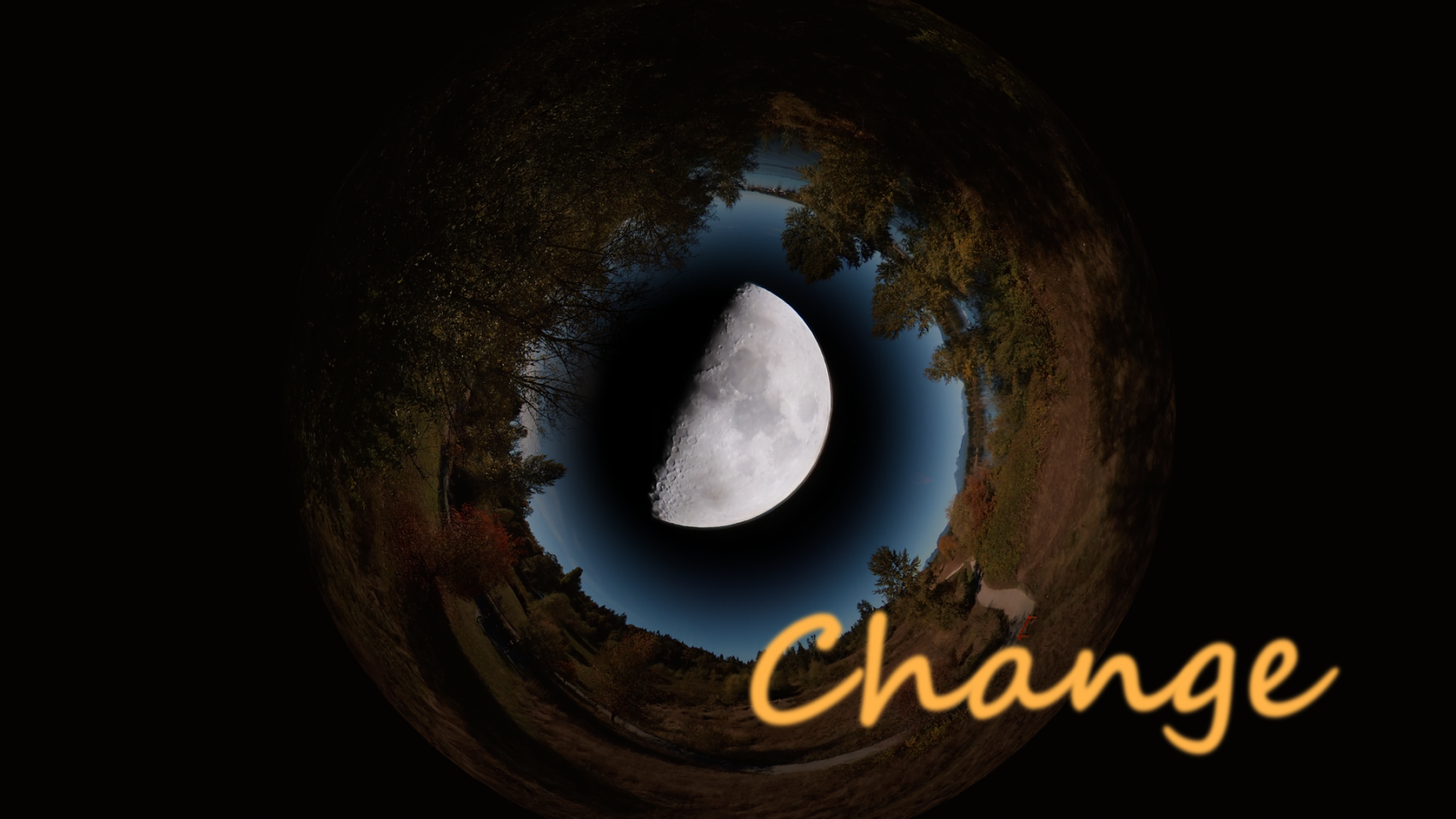
The ancient’s idea of change came from the waxing and waning of the moon, followed by the four seasons. In both cases the changes were constant and predictable. Our bodies are also in a perpetual state of flux, even though we may not notice or be able to predict the changes that are happening to us. Every breath we take, multiple cells die and new cells are formed. All we may deem as permanent, from a flowing river to a picturesque mountain range, are actually experiencing ongoing change.

Transformations in our personal life circumstances are as inevitable as they are constant. We see both large and small fluxuations within nature all the time. Sometimes it rains or floods, sometimes there is drought or a landslide and we adjust our lives accordingly, adapting to the outer circumstances. But then, when our personal circumstances change, we often react by wanting to hold on to old, habitual ways. Most times, holding on to our old ways is like trying to stop the rain.

Admittedly, changing one’s personal circumstances or habits can be difficult. When the need for a new direction comes into our lives, we can look for the opportunities it offers. Those who have had success say if you want to change something in your life it is best accomplished by taking small steps and allowing for time to observe what you are looking for as you go along. Sometimes when you recognize physical change, such as the inevitable signs of aging, you can look for the good it can offer, even though it may seem unpleasant at the time. With a loss of someone or something you hold dear you can learn to let go a little each day. Try to remember that it doesn’t have to be done all at once; steady, gradual progress is more effective.

When faced with an unexpected change, before you react, try to pause and consider, “Does this change benefit me or does it benefit somebody else?” You cannot change other people, but you can adjust yourself to reflect what you would like to see in others. Sometimes others will see a positive change in you and, consciously or not, adopt it themselves. Or you may see your own unfavorable attitudes reflected by others, signaling a need for self-adjustment.

The ancients believed beneficial change could not be brought about by force; it needs to conform to natural laws. Those who gained wisdom through the ages, understanding change as constant and unavoidable, chose not to concern themselves with things they could not do anything about. If there was something they could do, they formulated a plan and took action. Their counsel endures: learn to be gentle, consistent and enjoy the changes in your life, perhaps even have fun with them.
